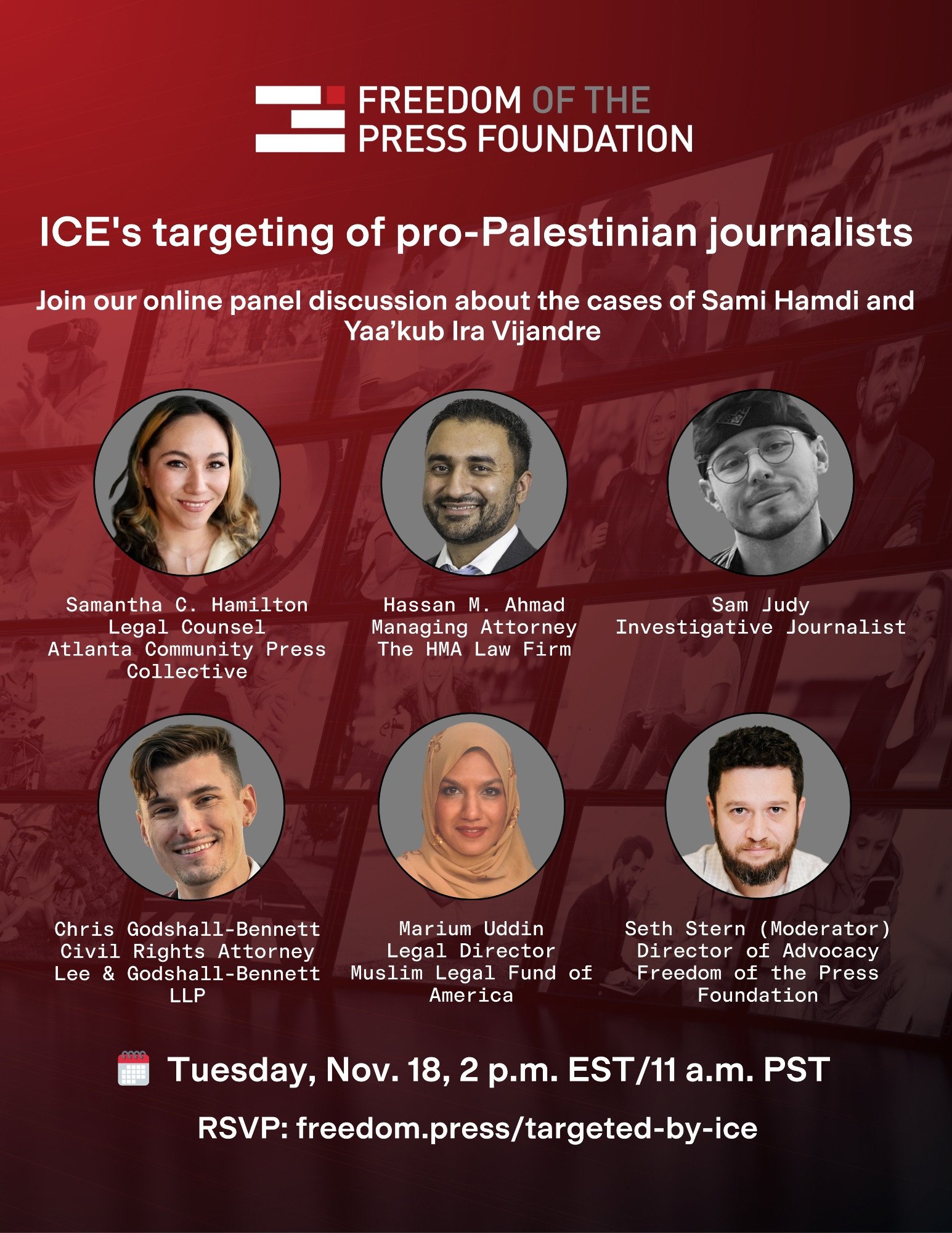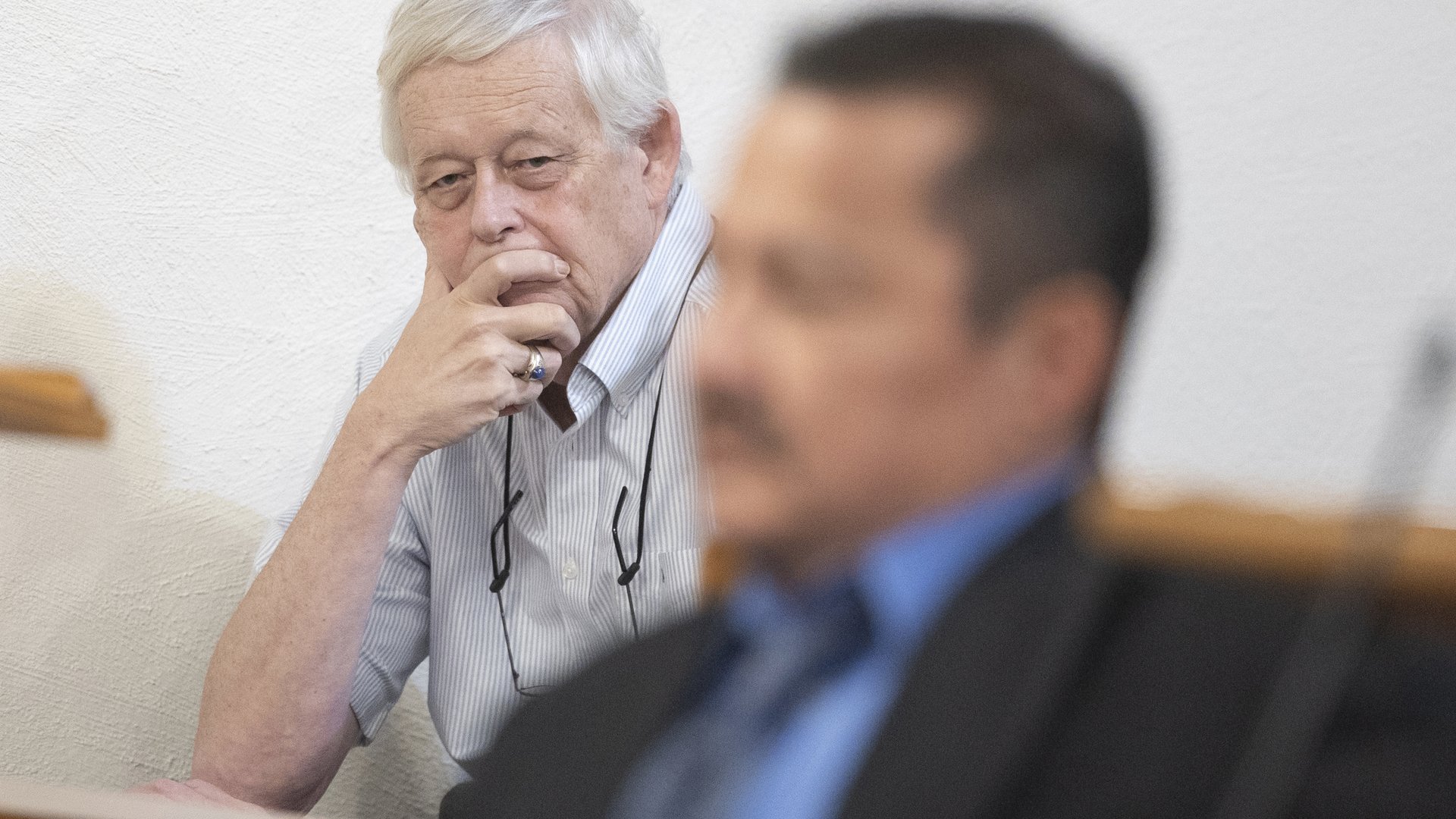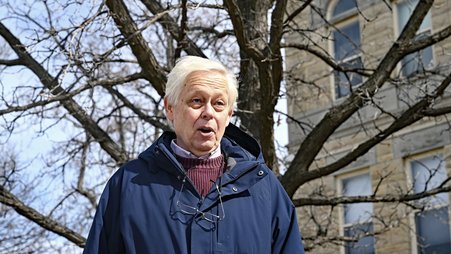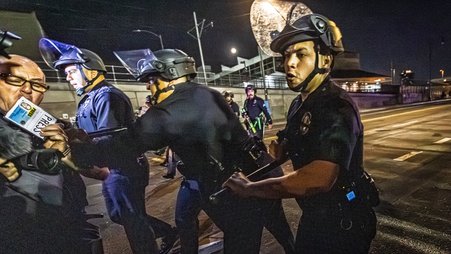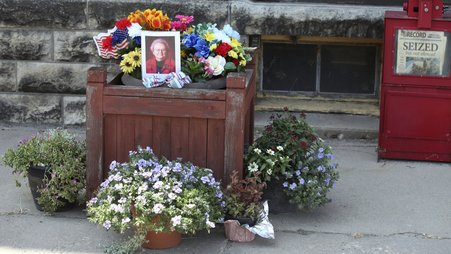Dear Friend of Press Freedom,
Rümeysa Öztürk has been facing deportation for 234 days for co-writing an op-ed the government didn’t like. As we’ll discuss during an online panel Tuesday, the government hasn’t stopped targeting journalists for removal. Read on for news from Kansas, Ohio, and more.
Kansas county pays $3M for forgetting the First Amendment
Press freedom just scored a $3 million win in Kansas. The county that participated in an illegal raid on the Marion County Record in 2023 is cutting big checks to journalists and a city councilor to settle their lawsuits.
As part of the settlement, the Marion County Sheriff’s Office also made a statement of “regret” for the raid, saying, “This likely would not have happened if established law had been reviewed and applied prior to the execution of the warrants.”
Ya think? FPF Senior Advocacy Adviser Caitlin Vogus broke down the flashing red lights any judge or cop should heed before storming a newsroom. Read her article here. And check out our March interview with Record publisher Eric Meyer.
No, journalists don’t need permission to cover immigration courts
Last month, we wrote to the Hyattsville immigration court in Maryland to express our alarm over a report that two journalists from Capital News Service had been expelled for not seeking express permission from the federal government to cover immigration proceedings.
That expulsion was contrary not only to the Constitution but also to the Executive Office of Immigration Review’s own guidance. But we noticed another problem with their fact sheet. It said reporters “must” check in upon arriving at immigration court. We’d been hearing anecdotes for some time about journalists being asked to “check in” at lobbies of immigration courts in other parts of the country. The fact sheet confirmed it.
In response, EOIR clarified that journalists are not required to either coordinate visits with the government in advance or check in upon arrival. And it issued an amended fact sheet to remove any doubt. We posted the fact sheet and email exchange on our site so any reporters given wrong information can have them handy. Read more here.
Secrecy and the midterms
The midterm elections are a year away, and it is essential to ensure that they are free and fair. Transparency is key, specifically surrounding the Department of Homeland Security’s election integrity unit and the Justice Department’s attempts to access voter data and equipment.
DHS’s election integrity unit is particularly secretive. For example, President Donald Trump appointed prominent election denier Heather Honey to lead the effort, but very little is known about what she’s doing with her newfound power. FPF’s Daniel Ellsberg Chair on Government Secrecy Lauren Harper has more about our efforts to hold the unit accountable. Subscribe to The Classifieds for more secrecy news.
Charges dropped against Cincinnati journalist
Charges have finally been dropped against CityBeat reporter Madeline Fening, who was arrested while covering a protest at the Roebling Bridge in northern Kentucky in July. Congratulations to the American Civil Liberties Union of Kentucky and their legal partners on the important win.
We led two letters in support of Fening and CityBeat intern Lucas Griffith. After the first, felony charges against the two were dropped. The second led prosecutors to admit to a reporter that they’d offered to drop charges in exchange for the journalists waiving their right to sue — a likely violation of both the Constitution and attorney ethics rules.
Now, both cases are over, but Griffith was found guilty of failure to disperse and fined $50. That may not sound like much, but the constitutional violation is still significant – journalists are not required to disperse along with protesters because they need to be free to cover the aftermath of protests. Read CityBeat’s coverage here.
What we’re reading
Trump vs. the BBC: What hurdles might the president’s legal argument face? (BBC). Trump “doesn’t care” if he wins the lawsuits he’s filed against newsrooms he doesn’t like, FPF’’s Advocacy Director Seth Stern told BBC. “The point is to intimidate and punish those he views as critical (of) him.”
When reporting is a crime (Inquest). “Prison journalism should not be illegal. It should not be starved, stifled, or silenced. ... laws need to change.” Read Inquest’s article featuring FPF columnist Jeremy Busby’s account of how his own journalism, and that of outside reporters wanting to tell his story, is stifled by prison authorities. And watch our video featuring journalist Daniel Moritz-Rabson discussing the guide to reporting on prisons that he wrote for FPF.
The FCC’s news distortion policy should be rescinded (Protect Democracy). Thanks to our friends at Protect Democracy for furthering the fight against Brendan Carr’s censorial FCC. Carr’s selective enforcement of the policy to characterize any coverage Trump doesn’t like as “distortion” shows why the policy shouldn’t exist in the first place.
Larry Wilson: Stop shooting at the press while we do our jobs (Los Angeles Daily News). “Cops are banned from shooting non-violent people with deadly projectiles — whether they’re protesters or journalists. Because it’s illegal,” said First Amendment lawyer Susan Seager.
I tried to deliver aid to Gaza. Israel kidnapped and tortured me (The Nation). Journalist and human rights lawyer Thomas Becker writes about his treatment while detained by Israel. Watch our online discussion last week, in partnership with Defending Rights & Dissent, with three U.S. journalists who reported similar experiences after being abducted from aid flotillas.
